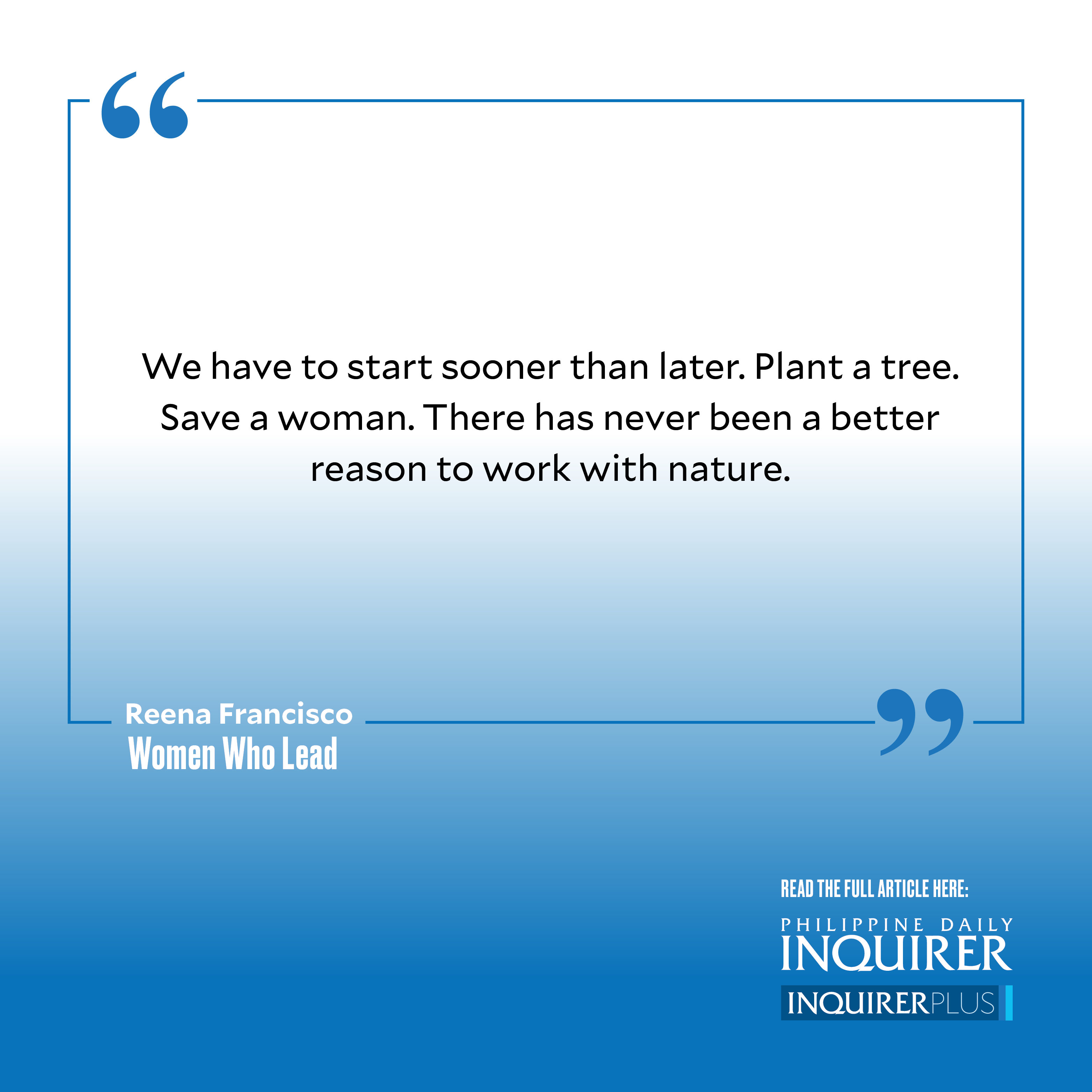Women and climate change

Did you know that more women than men are affected by climate change? I just watched a video on why women get the raw end of the deal. Studies made by the United Nations have identified areas where women are increasingly disadvantaged which are as follows:
Gender-based violence. When there is no food on the table due to drought, domestic violence increases.
A one-degree rise in temperature also causes increased propensity for partner violence.
Land rights of women are also affected by climate change. Even if 50 percent of farmworkers globally are women, only 13 percent of women own the land they work on. Land ownership can be a cushion against abuse because it increases one’s status in society.
Time poverty. Women spend more hours working everyday as temperatures rise and most of this is spent on unpaid care work.
Maternal health. Women’s health is affected by air pollution and most stillbirths are caused by weather disturbances. Further, women are disadvantaged in handling their monthly periods during times of extreme heat and rise in temperature.
But as Mary Robinson, former president of Ireland expressed: “Climate change is a man-made problem needing feminist solutions!”
Women must continue being incredible stewards of the land and will work the farm to produce food to put on the family table. Just think of how our women farmers work even while breastfeeding children, or while bringing up schoolchildren at home.
When we do trainings for something as varied as agriculture or weaving, women attend until such time that they have to prepare lunch or need to fetch children from school. When we do face-to-face or in-person trainings, mothers have to bring their small children along. Women will want to learn even if it means taking their household responsibilities, like childcare, with them. Globally, women will put more of their earnings back to the family table than men will.
These are just some of the reasons why climate change is an important aspect for women executives and women directors to shift more attention to. How does a woman director, for example, address dangers to women and children during disasters like floods, typhoons, and rising temperatures? Is there a National Disaster Risk Reduction and Management Council focus on women and children? Or is the solution the same for everyone regardless of gender? Definitely, women are more vulnerable and must be given the proper care and protection due to the already existing natural vulnerabilities in communities. Extreme weather conditions cause women and children to be more prone to sickness and increased risk to physical and mental health.
While women executives and many career women can hire help to manage the household, our rural women do not have this choice. This is why companies must make sure to provide free medical care, especially to agricultural workers. This is also why women farmers must be given assistance in childcare through daycare centers. Further, women in general must be protected from domestic abuse or violence of any kind.
Did you ever think climate change was gender-blind? And that people sweat whether they are nonbinary, binary, he/she, neurodivergent, or they, as today’s pronouns have been more explicit. Physically though, women are more affected because one cannot avoid domestic violence when tempers are on fire in the household.
Come to think of it, if women are more affected by climate change, then all the more we must find solutions that will liberate women from these situations. If we cannot solve climate issues at home, we should look at solving climate issues with special mention of how gender-based violence can be meted out the proper punishment, if it cannot be avoided. Men must be reminded that it is not solely a women’s responsibility to address climate change.
For women executives, directors, and other professionals, we have to make sure women have a recourse when men get hot-tempered and proceed to add to the global statistic for partner violence.
Imagine increasing temperatures and sea levels rising each day you come to work. Somewhere in the world a woman is suffering every time temperature rises, even by just one degree. Now is it not time to make sure we plant enough trees to lower the global climate even just a notch? Imagine all the women we would save from suffering. How else can we lower the global temperatures and liberate half the world from climate-induced violence?
We have to start sooner than later.
Plant a tree. Save a woman. There has never been a better reason to work with nature.
—————-
Reena Francisco cofounded ECHOstore, the country’s pioneer in green living through retail. She has been a sustainability advocate since 2007 as part of the Live Green movement. She is the treasurer of Business and Professional Women-BGC, a member of the PhilWEN coalition.
—————-
Women Who Lead is an initiative of PhilWEN.















